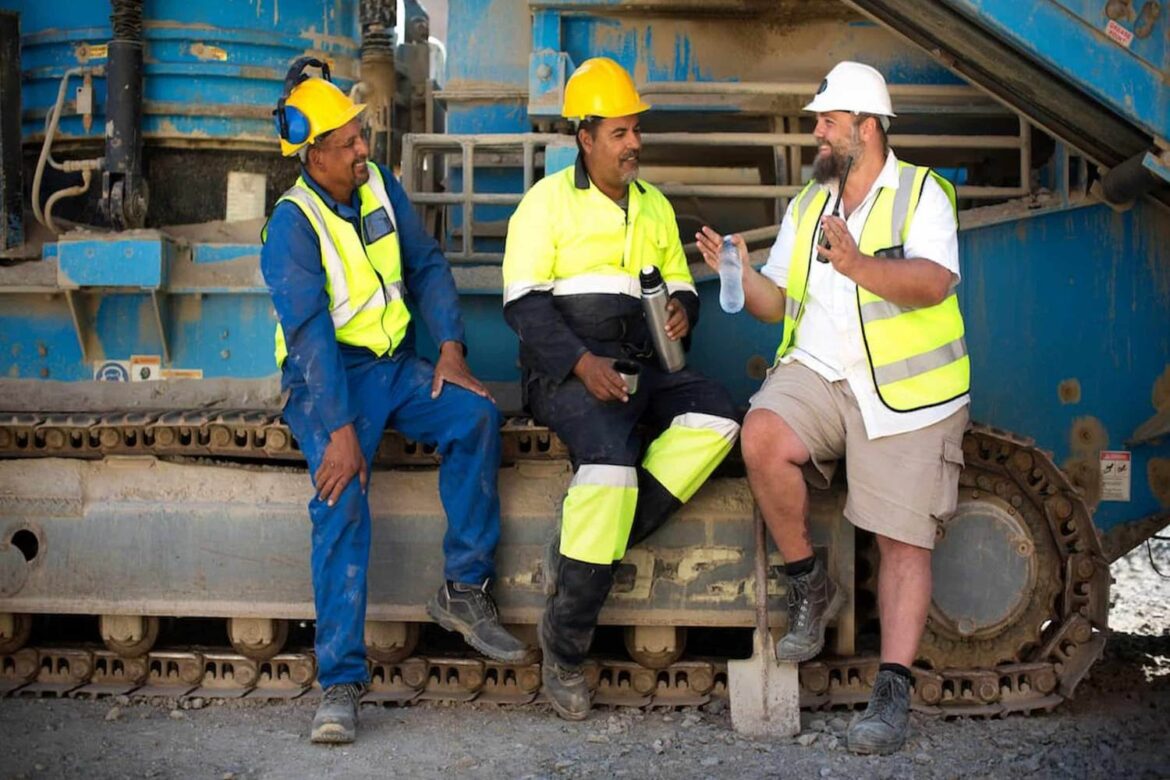
When was the last time you heard a group of South African men chatting about cholesterol over lunch, or sharing coping strategies for stress between shifts? Exactly. In workplaces across mining, logistics, and construction, men’s health in the workplace often gets buried deeper than a gold reef. It’s not that men don’t care — it’s that workplace culture often teaches them not to show it. “Push through,” “be tough,” “don’t make a fuss.” While admirable in spirit, this mindset has quietly turned into one of our most persistent occupational hazards.
The consequences? Productivity dips, preventable injuries rise, and mental health concerns simmer beneath the surface. And ironically, it’s costing businesses millions.
In this piece, we’ll dig into:
- The key health challenges men face on the job
- How South African law (and common sense) expects employers to protect wellbeing
- The science of occupational hygiene and early risk detection
- How Apex Environmental supports companies leading by example
- Practical strategies to reduce stigma and get men talking before things break — literally or figuratively
And yes, we’ll do it with empathy, a little humour, and a focus on real-world impact. After all, men’s health shouldn’t be a punchline,it should be a policy and 100% compliant with Occupational Hygiene Regulations.
The Hidden Burden — Common Health Issues Among Men in the Workplace
Men in high-risk industries carry more than heavy tools and long shifts — they carry cultural expectations that make health-seeking behaviour rare. Some of the most common issues include:
Cardiovascular Risk, Hypertension & Metabolic Disease
The combination of stress, poor diet, and shift work is like a perfect storm for heart problems. Many men avoid screenings because “I feel fine,” but silent conditions like hypertension don’t exactly send calendar invites before striking. Regular check-ups save lives, and downtime.
Stress, Mental Health & Substance Use
From tight deadlines to hazardous conditions, stress is the invisible companion of every worker. But in male-dominated workplaces, it’s often easier to reach for a beer than a counsellor. This pattern not only hurts individuals, it can drag down entire teams through absenteeism and accidents.
Musculoskeletal Injuries & Ergonomics
South African workers pride themselves on endurance. Yet that same grit can turn small strains into permanent damage. An aching back or stiff shoulder is not a badge of honour, it’s a workplace risk factor waiting to escalate.
Noise, Respiratory Exposure, Chemical Hazards
Mining dust, diesel fumes, vibration, and noise exposure quietly chip away at long-term health. These are precisely the areas where occupational hygiene — Apex’s bread and butter — plays a life-saving role.
The Price of Silence — Why Workplace Culture Matters
When men suffer in silence, the organisation pays the price: in accidents, lost time, and morale. It’s not weakness to speak up; it’s wisdom. Companies that normalise vulnerability are statistically safer and more productive.
Safety & Incident Risk
Fatigue and stress cloud judgment, increasing the likelihood of accidents. A tough guy who won’t admit exhaustion is not brave — he’s at risk.
Productivity & Presenteeism
“Presenteeism” — turning up to work physically but mentally checked out — is the new silent productivity killer. And you can’t measure it with a clock card.
Employee Morale & Retention
Silence breeds mistrust. When management ignores health concerns, workers disengage. The reverse is also true: when they feel cared for, loyalty and pride soar.
Legal & Ethical Obligations Under South African Law
Men’s health isn’t just a moral issue — it’s a compliance issue. The Occupational Health and Safety Act (OHS Act No. 85 of 1993) clearly mandates that employers maintain a working environment “safe and without risk to the health” of employees.
The Role of Occupational Hygiene
Apex Environmental, as a Department of Employment and Labour–approved Inspection Authority (AIA), supports companies in complying with health regulations through comprehensive exposure assessments, noise and chemical monitoring, and risk evaluations.
These assessments aren’t paperwork — they’re preventive medicine for your workplace.
Ethical Responsibility
Beyond law, there’s decency. A good employer recognises that the person behind the hard hat is also a father, partner, brother, or son. Protecting health honours that humanity — and, it’s good business.
The Power of Occupational Hygiene Assessments
Occupational hygiene acts as an early warning system. Apex’s experts assess air quality, noise, chemical exposure, heat stress, ergonomics, and more — turning data into decisions that save lives and reduce costs.
Imagine knowing your workplace’s “invisible” risks before they become visible crises? That’s the power of proactive assessment.
How Apex Environmental Supports Workplace Wellness
Apex doesn’t just measure — we mentor, monitor, and motivate. Through accredited training, comprehensive hygiene monitoring, and consulting services, we help companies translate data into culture change.
We have led initiatives like:
- On-site exposure monitoring in mining and manufacturing
- Ergonomic assessments across diverse work environments
- Stress awareness and psychosocial risk programs through our “Men’s Health at Work” campaigns
Each program shows that small, structured steps — from better ventilation to honest conversation — make a measurable difference.
Real-World Industry Trends and Apex’s Role
Apex’s published work in “Men’s Health at Work: Promoting Physical and Mental Well-being” spotlights the shift from compliance-based hygiene to people-first wellbeing. Industry is moving toward integrated wellness — where monitoring dust levels goes hand-in-hand with monitoring morale.
This human-centred approach reflects a growing global recognition: health and productivity are inseparable.
Strategies to Reduce Stigma and Encourage Early Reporting
- Lead from the top. When senior leaders openly talk about health checkups or therapy, stigma crumbles.
- Make screenings routine. Normalize it like toolbox talks — minus the spanners.
- Train supervisors. Equip them to notice when someone’s not coping and respond with empathy, not judgment.
- Create safe spaces. Confidential reporting channels and Employee Assistance Programs build trust.
- Celebrate wellness. A friendly competition on step counts or hydration goals can turn wellness into camaraderie.
Implementation Roadmap
| Phase | Action | Apex Environmental’s Role |
| 1 | Baseline hygiene audit | Conduct exposure monitoring & HRA |
| 2 | Leadership engagement | Co-develop awareness campaigns |
| 3 | Pilot wellness program | Support screenings & ergonomics workshops |
| 4 | Reporting system setup | Train supervisors on early intervention |
| 5 | Implement controls | Advise on ventilation, PPE, ergonomic redesign |
| 6 | Review & refine | Track metrics, repeat monitoring, update policies |
Key Metrics to Track Progress
- Screening participation rates
- Stress and fatigue reports
- Absenteeism vs. presenteeism trends
- Exposure level trends
- Employee satisfaction feedback
Data turns talk into accountability.
Tough Conversations, Healthier Outcomes
South African men have built some of the hardest industries on earth — from deep-level mining to cross-border trucking. They can handle heat, dust, deadlines, and danger. But the toughest challenge might just be saying, “I’m not okay.”
The good news? Workplaces can change that. Through open dialogue, hygiene monitoring, and wellness initiatives, companies can replace stigma with support.
And when in doubt, call in the pros — Apex Environmental’s combination of technical excellence and human insight helps employers move from compliance to genuine care.
Because real strength isn’t ignoring pain — it’s tackling it before it tackles you.








